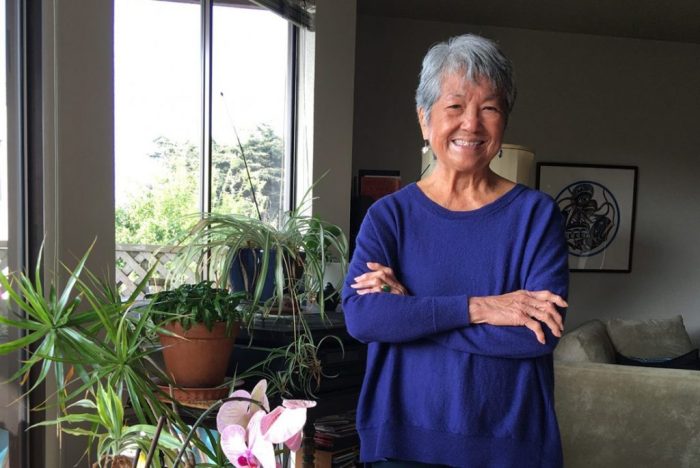When i was growing up by nellie wong – Nellie Wong’s captivating memoir, ‘When I Was Growing Up,’ invites readers into a poignant and evocative exploration of identity, memory, and the complexities of growing up as a Chinese American woman. Through vivid prose and insightful reflections, Wong delves into the formative experiences that shaped her worldview and the themes that permeate her literary work.
Wong’s childhood in San Francisco’s Chinatown, her experiences of racism and discrimination, and her search for a sense of belonging provide a rich backdrop for her exploration of identity. Her writing eloquently captures the challenges and triumphs of navigating multiple cultures, the complexities of family relationships, and the power of memory in shaping our present.
Nellie Wong’s Childhood Experiences: When I Was Growing Up By Nellie Wong
Nellie Wong’s childhood experiences profoundly shaped her perspective and writing. Growing up as a Chinese American girl in a predominantly white neighborhood, she navigated cultural and racial differences that left an indelible mark on her psyche. Her experiences with discrimination, alienation, and the search for identity became central themes in her work.
Specific events and influences that shaped Wong’s worldview include her family’s immigration to the United States, her struggles with language and cultural barriers, and her experiences with racism and prejudice. These experiences instilled in her a deep understanding of the complexities of identity and the challenges faced by marginalized communities.
The cultural and historical context of Wong’s upbringing also played a significant role in her writing. The post-World War II era, marked by both social progress and lingering racial tensions, provided a backdrop for her exploration of themes related to immigration, assimilation, and the search for belonging.
Themes of Identity and Belonging
Nellie Wong’s work is deeply imbued with themes of identity and belonging. As a Chinese American woman, she grappled with the complexities of her dual heritage and the search for a sense of home in two cultures. Her characters often struggle with issues of identity, culture, and community, reflecting her own experiences and those of other marginalized groups.
Wong’s writing explores the ways in which individuals negotiate their identities in a multicultural society. Her characters navigate issues of race, gender, and class, seeking to define themselves amidst the expectations and biases of both the dominant culture and their own communities.
Wong’s work also highlights the importance of community and belonging. Her characters find solace and support in their connections with family, friends, and fellow immigrants, creating a sense of belonging that transcends cultural boundaries.
The Role of Memory and Nostalgia
Memory and nostalgia play a vital role in Nellie Wong’s writing. She uses these elements to evoke a sense of time and place, capturing the complexities of the past and its impact on the present. Her work often explores the ways in which memory shapes our understanding of ourselves and our experiences.
Wong’s writing is characterized by vivid descriptions of childhood memories, family traditions, and cultural practices. These memories provide a window into the past, allowing readers to experience the world through the eyes of her characters and gain a deeper understanding of their motivations and perspectives.
Nostalgia, in Wong’s work, is both a source of comfort and a reminder of the passage of time. Her characters often find solace in the memories of their past, but they also grapple with the realization that time is fleeting and the world is constantly changing.
Literary Style and Techniques
Nellie Wong’s literary style is characterized by its lyrical prose, vivid imagery, and nuanced exploration of complex emotions. She employs a variety of literary techniques to create a rich and immersive reading experience.
Wong’s use of language is precise and evocative. She employs sensory details and figurative language to create a vivid and tangible world for her readers. Her imagery often draws upon her own cultural experiences, creating a unique and authentic voice.
Wong’s narrative structure is often non-linear, reflecting the fragmented nature of memory and the complex ways in which the past and present intersect. Her stories often unfold through a series of flashbacks and interwoven perspectives, creating a multidimensional and immersive reading experience.
Social and Cultural Impact

Nellie Wong’s work has had a significant social and cultural impact, particularly within the Asian American literary landscape. Her writing has raised awareness of important social and cultural issues, including the experiences of immigrants, the challenges faced by marginalized communities, and the search for identity and belonging.
Wong’s work has been widely praised for its authenticity and its ability to give voice to the experiences of underrepresented communities. Her writing has inspired other Asian American writers and has helped to shape the broader literary landscape.
Wong’s work has also been instrumental in promoting cross-cultural understanding and dialogue. Her stories provide a window into the lives of Chinese Americans and other marginalized groups, fostering empathy and a greater understanding of the complexities of the human experience.
Question & Answer Hub
What is the significance of Nellie Wong’s childhood experiences in her writing?
Wong’s childhood experiences in San Francisco’s Chinatown, marked by racism and discrimination, deeply influenced her perspective on identity, belonging, and the challenges faced by Chinese Americans.
How does Wong explore themes of identity and belonging in her work?
Wong’s writing delves into the complexities of navigating multiple cultures, the search for a sense of belonging, and the ways in which family relationships shape our identity.
What is the role of memory and nostalgia in Wong’s writing?
Wong uses memory and nostalgia to evoke a vivid sense of time and place, capturing the complexities of the past and its impact on the present.
How has Wong’s work impacted the Asian American literary landscape?
Wong’s writing has significantly contributed to the visibility and recognition of Asian American literature, providing a platform for diverse voices and experiences.